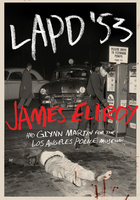At a quarter to six o'clock, Monsieur de Gondy, having finished his business, returned to the archiepiscopal palace.
At six o'clock the curate of St. Merri was announced.
The coadjutor glanced rapidly behind and saw that he was followed by another man. The curate then entered, followed by Planchet.
"Your holiness," said the curate, "here is the person of whom I had the honor to speak to you."
Planchet saluted in the manner of one accustomed to fine houses.
"And you are disposed to serve the cause of the people?" asked Gondy.
"Most undoubtedly," said Planchet. "I am a Frondist from my heart. You see in me, such as I am, a person sentenced to be hung."
"And on what account?"
"I rescued from the hands of Mazarin's police a noble lord whom they were conducting back to the Bastile, where he had been for five years."
"Will you name him?"
"Oh, you know him well, my lord—it is Count de Rochefort."
"Ah! really, yes," said the coadjutor, "I have heard this affair mentioned. You raised the whole district, so they told me!"
"Very nearly," replied Planchet, with a self-satisfied air.
"And your business is——"
"That of a confectioner, in the Rue des Lombards."
"Explain to me how it happens that, following so peaceful a business, you had such warlike inclinations."
"Why does my lord, belonging to the church, now receive me in the dress of an officer, with a sword at his side and spurs to his boots?"
"Not badly answered, i'faith," said Gondy, laughing; "but I have, you must know, always had, in spite of my bands, warlike inclinations."
"Well, my lord, before I became a confectioner I myself was three years sergeant in the Piedmontese regiment, and before I became sergeant I was for eighteen months the servant of Monsieur d'Artagnan."
"The lieutenant of musketeers?" asked Gondy.
"Himself, my lord."
"But he is said to be a furious Mazarinist."
"Phew!" whistled Planchet.
"What do you mean by that?"
"Nothing, my lord; Monsieur d'Artagnan belongs to the service; Monsieur d'Artagnan makes it his business to defend the cardinal, who pays him, as much as we make it ours, we citizens, to attack him, whom he robs."
"You are an intelligent fellow, my friend; can we count upon you?"
"You may count upon me, my lord, provided you want to make a complete upheaval of the city."
"'Tis that exactly. How many men, think you, you could collect together to-night?"
"Two hundred muskets and five hundred halberds."
"Let there be only one man in every district who can do as much and by to-morrow we shall have quite a powerful army. Are you disposed to obey Count de Rochefort?"
"I would follow him to hell, and that is saying not a little, as I believe him entirely capable of the descent."
"Bravo!"
"By what sign to-morrow shall we be able to distinguish friends from foes?"
"Every Frondist must put a knot of straw in his hat."
"Good! Give the watchword."
"Do you want money?"
"Money never comes amiss at any time, my lord; if one has it not, one must do without it; with it, matters go on much better and more rapidly."
Gondy went to a box and drew forth a bag.
"Here are five hundred pistoles," he said; "and if the action goes off well you may reckon upon a similar sum to-morrow."
"I will give a faithful account of the sum to your lordship," said Planchet, putting the bag under his arm.
"That is right; I recommend the cardinal to your attention."
"Make your mind easy, he is in good hands."
Planchet went out, the curate remaining for a moment.
"Are you satisfied, my lord?" he asked.
"Yes; he appears to be a resolute fellow."
"Well, he will do more than he has promised."
"He will do wonders then."
The curate rejoined Planchet, who was waiting for him on the stairs. Ten minutes later the curate of St. Sulpice was announced. As soon as the door of Gondy's study was opened a man rushed in. It was the Count de Rochefort.
"'Tis you, then, my dear count," cried Gondy, offering his hand.
"You have made up your mind at last, my lord?" said Rochefort.
"It has been made up a long time," said Gondy.
"Let us say no more on the subject; you tell me so, I believe you. Well, we are going to give a ball to Mazarin."
"I hope so."
"And when will the dance begin?"
"The invitations are given for this evening," said the coadjutor, "but the violins will not begin to play until to-morrow morning."
"You may reckon upon me and upon fifty soldiers which the Chevalier d'Humieres has promised me whenever I need them."
"Upon fifty soldiers?"
"Yes, he is making recruits and he will lend them to me; if any are missing when the fete is over, I shall replace them."
"Good, my dear Rochefort; but that is not all. What have you done with Monsieur de Beaufort?"
"He is in Vendome, where he will wait until I write to him to return to Paris."
"Write to him; now's the time."
"You are sure of your enterprise?"
"Yes, but he must make haste; for hardly will the people of Paris have revolted before we shall have a score of princes begging to lead them. If he defers he will find the place of honor taken."
"Shall I send word to him as coming from you?"
"Yes certainly."
"Shall I tell him that he can count on you?"
"To the end."
"And you will leave the command to him?"
"Of the war, yes, but in politics——"
"You must know it is not his element."
"He must leave me to negotiate for my cardinal's hat in my own fashion."
"You care about it, then, so much?"
"Since they force me to wear a hat of a form which does not become me," said Gondy, "I wish at least that the hat should be red."
"One must not dispute matters of taste and colors," said Rochefort, laughing. "I answer for his consent."
"How soon can he be here?"
"In five days."
"Let him come and he will find a change, I will answer for it."
"Therefore, go and collect your fifty men and hold yourself in readiness."
"For what?"
"For everything."
"Is there any signal for the general rally?"
"A knot of straw in the hat."
"Very good. Adieu, my lord."
"Adieu, my dear Rochefort."
"Ah, Monsieur Mazarin, Monsieur Mazarin," said Rochefort, leading off his curate, who had not found an opportunity of uttering a single word during the foregoing dialogue, "you will see whether I am too old to be a man of action."
It was half-past nine o'clock and the coadjutor required half an hour to go from the archbishop's palace to the tower of St. Jacques de la Boucherie. He remarked that a light was burning in one of the highest windows of the tower. "Good," said he, "our syndic is at his post."
He knocked and the door was opened. The vicar himself awaited him, conducted him to the top of the tower, and when there pointed to a little door, placed the light which he had brought with him in a corner of the wall, that the coadjutor might be able to find it on his return, and went down again. Although the key was in the door the coadjutor knocked.
"Come in," said a voice which he recognized as that of the mendicant, whom he found lying on a kind of truckle bed. He rose on the entrance of the coadjutor, and at that moment ten o'clock struck.
"Well," said Gondy, "have you kept your word with me?"
"Not exactly," replied the mendicant.
"How is that?"
"You asked me for five hundred men, did you not? Well, I have ten thousand for you."
"You are not boasting?"
"Do you wish for a proof?"
"Yes."
There were three candles alight, each of which burnt before a window, one looking upon the city, the other upon the Palais Royal, and a third upon the Rue Saint Denis.
The man went silently to each of the candles and blew them out one after the other.
"What are you doing?" asked the coadjutor.
"I have given the signal."
"For what?"
"For the barricades. When you leave this you will behold my men at work. Only take care you do not break your legs in stumbling over some chain or your neck by falling in a hole."
"Good! there is your money, the same sum as that you have received already. Now remember that you are a general and do not go and drink."
"For twenty years I have tasted nothing but water."
The man took the bag from the hands of the coadjutor, who heard the sound of his fingers counting and handling the gold pieces.
"Ah! ah!" said the coadjutor, "you are avaricious, my good fellow."
The mendicant sighed and threw down the bag.
"Must I always be the same?" said he, "and shall I never succeed in overcoming the old leaven? Oh, misery, oh, vanity!"
"You take it, however."
"Yes, but I make hereby a vow in your presence, to employ all that remains to me in pious works."
His face was pale and drawn, like that of a man who had just undergone some inward struggle.
"Singular man!" muttered Gondy, taking his hat to go away; but on turning around he saw the beggar between him and the door. His first idea was that this man intended to do him some harm, but on the contrary he saw him fall on his knees before him with his hands clasped.
"Your blessing, your holiness, before you go, I beseech you!" he cried.
"Your holiness!" said Gondy; "my friend, you take me for some one else."
"No, your holiness, I take you for what you are, that is to say, the coadjutor; I recognized you at the first glance."
Gondy smiled. "And you want my blessing?" he said.
"Yes, I have need of it."
The mendicant uttered these words in a tone of such humility, such earnest repentance, that Gondy placed his hand upon him and gave him his benediction with all the unction of which he was capable.
"Now," said Gondy, "there is a communion between us. I have blessed you and you are sacred to me. Come, have you committed some crime, pursued by human justice, from which I can protect you?"
The beggar shook his head. "The crime which I have committed, my lord, has no call upon human justice, and you can only deliver me from it by blessing me frequently, as you have just done."
"Come, be candid," said the coadjutor, "you have not all your life followed the trade which you do now?"
"No, my lord. I have pursued it for six years only."
"And previously, where were you?"
"In the Bastile."
"And before you went to the Bastile?"
"I will tell you, my lord, on the day when you are willing to hear my confession."
"Good! At whatsoever hour of the day or night you may present yourself, remember that I shall be ready to give you absolution."
"Thank you, my lord," said the mendicant in a hoarse voice. "But I am not yet ready to receive it."
"Very well. Adieu."
"Adieu, your holiness," said the mendicant, opening the door and bending low before the prelate.















